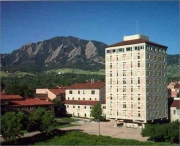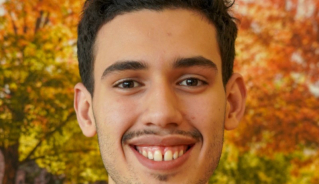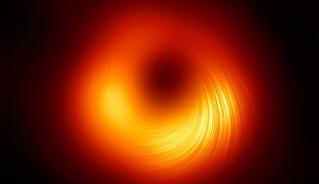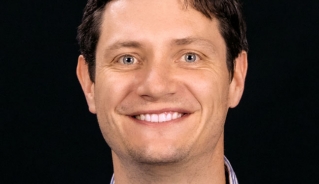About the Dexter Group
In the Spotlight
JILA undergraduate student Aaron Barrios has recently been honored with the prestigious Jacob Van Ek Scholarship, an accolade conferred by the University of Colorado Boulder College of Arts and Sciences to a select group of exceptional undergraduates. This year, Barrios is among 23 distinguished students to receive one of the college's highest honors, reflecting his outstanding contributions and academic excellence in the fields of Physics, Astronomy, and Mathematics.
Read More
Two JILA graduate students were awarded this year's Richard Nelson Thomas Award for Graduate Students in Astrophyiscs. This award is given annually in honor of Dr. Richard Nelson Thomas, a founding member of JILA and an astrophysics researcher. Dr. Thomas was instrumental in establishing JILA's Visiting Fellows program, as well as growing the institution as a whole. Because of Dr. Thomas' legacy, his family and friends established an annual award given to an outstanding graduate student in astrophysics.
Read More
In a team of over 300 scientists, JILA Fellow and assistant professor in the Department of Astrophysical and Planetary Sciences, Jason Dexter digs further into the first picture ever taken of a black hole. His research has been recently published in a new paper for the Astrophysical Journal Letters.
Read More
JILA Fellow Jason Dexter has been selected for a 2020 Sloan Fellowship.
Read More
JILA Address
 We are located at JILA: A joint institute of NIST and the University of Colorado Boulder.
We are located at JILA: A joint institute of NIST and the University of Colorado Boulder.
Map | JILA Phone: 303-492-7789 | Address: 440 UCB, Boulder, CO 80309






 The Physics Frontiers Centers (PFC) program supports university-based centers and institutes where the collective efforts of a larger group of individuals can enable transformational advances in the most promising research areas. The program is designed to foster major breakthroughs at the intellectual frontiers of physics by providing needed resources such as combinations of talents, skills, disciplines, and/or specialized infrastructure, not usually available to individual investigators or small groups, in an environment in which the collective efforts of the larger group can be shown to be seminal to promoting significant progress in the science and the education of students. PFCs also include creative, substantive activities aimed at enhancing education, broadening participation of traditionally underrepresented groups, and outreach to the scientific community and general public.
The Physics Frontiers Centers (PFC) program supports university-based centers and institutes where the collective efforts of a larger group of individuals can enable transformational advances in the most promising research areas. The program is designed to foster major breakthroughs at the intellectual frontiers of physics by providing needed resources such as combinations of talents, skills, disciplines, and/or specialized infrastructure, not usually available to individual investigators or small groups, in an environment in which the collective efforts of the larger group can be shown to be seminal to promoting significant progress in the science and the education of students. PFCs also include creative, substantive activities aimed at enhancing education, broadening participation of traditionally underrepresented groups, and outreach to the scientific community and general public.